Curated OER
Create Your Own Investigation
Young scholars design and implement an experiment intended to measure and analyze the air quality of a particular location. They focus on looking for ozone and particulate pollutants.
Curated OER
The Awful Eight Lesson Plan
The students list major air pollutants, what causes them, and their effects on people and the environment. Students list ways they can prevent or reduce the types of air pollution mentioned in the play.
Curated OER
The Awful 8: The Play
Students become aware of the cause and effects of different air pollutants. They present a play about the different pollutants.
Curated OER
What Can I Do?
Students describe the things that citizens can do to reduce ground level ozone and particulate matter. They design a flyer, poster or webpage to teach others about diesel bus retrofitting projects.
Curated OER
Smog City - Part I
Students apply an interactive smog visualization application, Smog City to see how ozone levels are related to population levels and emissions. They study associated vocabulary and complete a worksheet.
Curated OER
Transport
Pupils analyze wind barbs and determine which way the wind is blowing and how hard the wind is blowing. They access near real time wind data and pollutant animations to track the transport and destination of pollutants.
Curated OER
Affecting Transportation Choices-Walk, Don't Ride!
Students discuss methods of transportation they use and create a trip tally to determine which methods they use the most.
Curated OER
Global Resources: What Will You Do with Your Power?
Young scholars examine the human impact on natural resources. They read and discuss an article, evaluate nations regarding their environmental problem-solving, develop a presidential speech on the environment, and conduct a natural...
Curated OER
Geography of the Wasatch Front
Students examine and discuss urban geography and land-cover types along the Wasatch Front. They analyze thermal images, create collages, and predict surface and air temperatures from aerial photos in the Salt Lake City Valley.
Curated OER
Geography of the Wasatch Front
Students identify the three main types of urban environments by learning characteristic land-cover types. They examine and analyze a thermal image of Salt Lake City. Then they predict surface and air temperatures from aerial photos.
Center for Innovation in Engineering and Science Education, Stevens Institute of Technology
Ciese: Air Pollution: What's the Solution?
Outdoor air pollution poses a major threat to human health and threatens the ozone layer. Students will examine real time weather data in this extensive unit to learn how air quality is measured, its health impact on at-risk populations,...
Center for Innovation in Engineering and Science Education, Stevens Institute of Technology
Ciese Real Time Data Projects: Air Pollution: Tracking Ozone
In this activity, you will monitor the levels of ozone in Trenton, New Jersey for several days and make final decisions about the influence of weather on ground level ozone.
University Corporation for Atmospheric Research
Ucar: Name That Air Pollutant
Students create graphic organizers describing the four major air pollutants regulated by the U.S. Clean Air Act (ground-level ozone, particle pollution, carbon monoxide, and sulfur dioxide) and then identify the pollutants with a...
University Corporation for Atmospheric Research
Ucar: Ozone in the Troposphere
A detailed overview of the ground-level ozone, tropospheric ozone, with explanations about how it is called the bad ozone and how it varies day to day. All information is reinforced through pictures, graphs, and learning activities....
Environmental Education for Kids
Eek!: Hot Summer Days Ozone Action
Easy to read and understand site from Environmental Education for Kids. Good and bad ozone explained and illustrated. Complete with glossary and Quizzler at the end.
American Geosciences Institute
American Geosciences Institute: Earth Science Week: Plant an Ozone Monitoring Garden
Students monitor local ozone by looking in their neighborhoods for ozone-injured plants or establishing similar gardens outside their schools or in their backyards.
Next.cc
Next: Air Quality
Learn why clean air is necessary to a healthy life by completing these five activities.
University Corporation for Atmospheric Research
Ucar: Ozone in Our Neighborhood
Students will experiment to understand variations in the amount of ground-level ozone between different places in their neighborhood, town, or city.
Akron Children's Hospital
Akron Children's Hospital: Kidshealth: Air Pollution and Asthma
Discussion of air pollution and how it can cause asthma flare-ups.
US Environmental Protection Agency
Epa: Smog: Who Does It Hurt? [Pdf]
Extensive site provides information on health effects of ground-level ozone-smog. Explains the air quality index and provides links to area ozone maps.


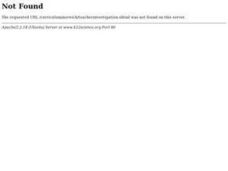
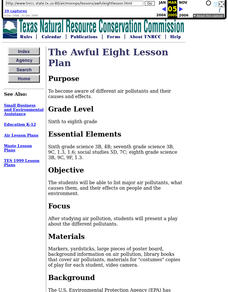






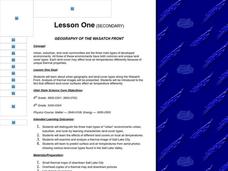
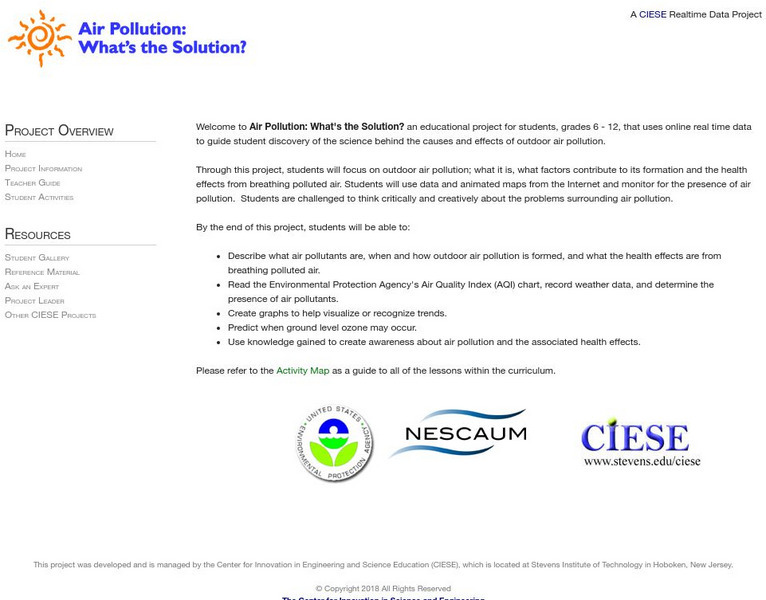
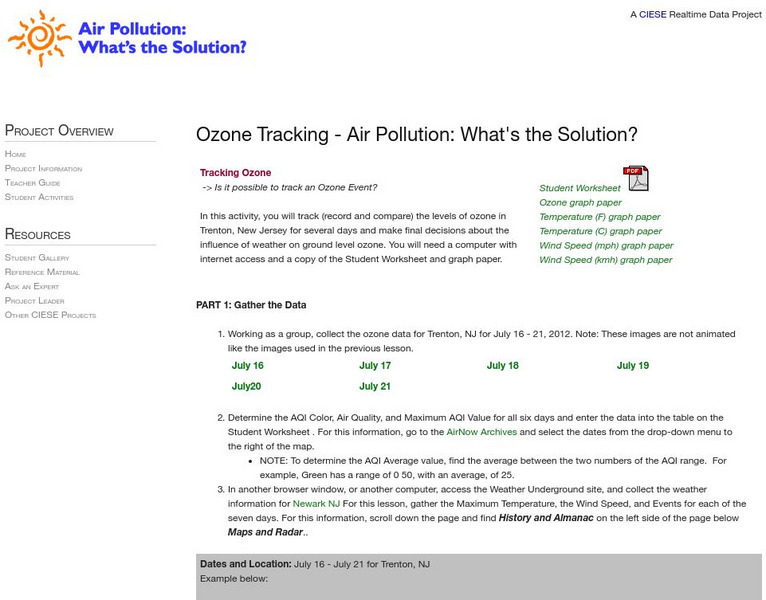


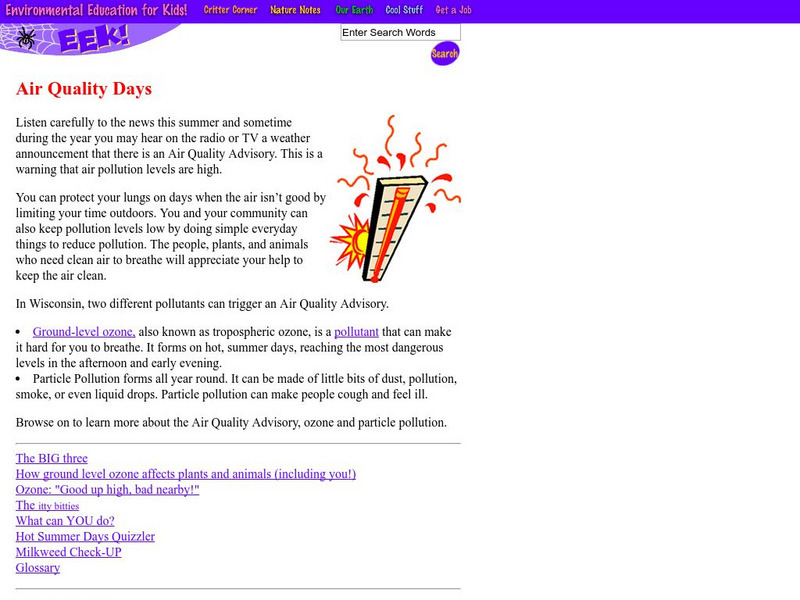



![Epa: Smog: Who Does It Hurt? [Pdf] Website Epa: Smog: Who Does It Hurt? [Pdf] Website](https://content.lessonplanet.com/knovation/original/39056-13a3ccd523a11f50e1eaae0f9b167eec.jpg?1661504046)